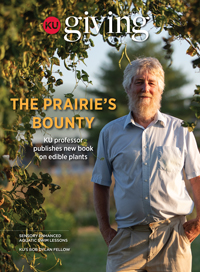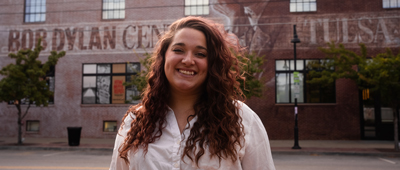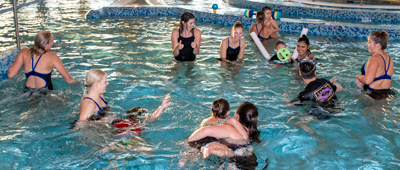KU Giving Magazine
Big Plans for Brains
Valerie Gieler
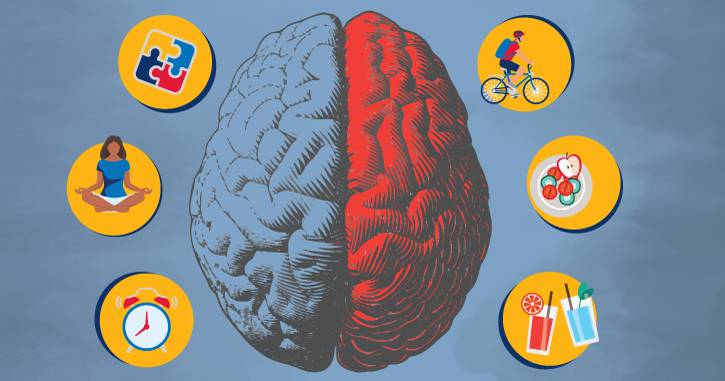
KU Alzheimer’s Disease Center is expanding prevention and treatment with the Brain Health Initiative
Dr. Jeff Burns has been called a persistent optimist. Even so, it is unlikely the Burns of 15 years ago would have believed he would now be co-leading the nationally recognized University of Kansas Alzheimer’s Disease Center with hope for a cure in his lifetime. Burns joined KU Medical Center as a faculty member in 2004 and has been instrumental in Alzheimer’s research since. He helped establish KU Alzheimer’s Disease Center (KU ADC) and then co-led the effort for it to become a National Institutes of Health (NIH) Alzheimer’s Disease Center — one of only 31 in the U.S. — in 2011.
“I wanted to build something that would grow — at home, in Kansas City, where I grew up,” Burns said. “I came back with a goal of creating this program. I wanted to start a program that was bigger than me and would grow and sustain itself.”
The fascination with Alzheimer’s disease and research came at the same time for Burns. Alzheimer’s is one of the most feared and costly diseases, and it was a mystery until recently — 90% of what is currently known was discovered in the past 20 years. “I was interested in research and Alzheimer’s as an opportunity because it’s such a problem,” Burns said. “There was very little we could do before. Now, we have treatments that help and we are pushing hard to develop new drugs.”
Positive Partnership
Burns directs KU ADC in partnership with Dr. Russ Swerdlow. Burns said Swerdlow is the innovator on the molecular side, and he is the program builder. They make an excellent team of physician-scientists. Under their leadership, KU ADC has flourished. It is respected worldwide for its exceptional patient care, educational outreach, and innovative research on how exercise, nutrition and metabolism relate to Alzheimer’s disease.
Perhaps the most remarkable accomplishment of the pair is their ability to radiate positivity despite all the challenges related to treating and finding a cure for a disease with staggering numbers. Affecting nearly 6 million Americans, medical costs associated with Alzheimer’s are estimated at more than $250 billion annually. In Kansas and Missouri, 163,000 people have dementia (Alzheimer’s is the most common form of dementia, accounting for up to 80% of cases). This number is expected to increase 25% by 2025.
And yet there is hope. A conversation with either center director leaves you with a sense of optimism. Prevention works, and progress is happening. “Someone is going to cure Alzheimer’s disease, and we think it would be great if it were us,” Swerdlow said. “The NIH has identified KU ADC as a place where answers may be found.”
With this enthusiasm comes the realization KU ADC needs to expand its focus, reach and facility. Researchers are poised to do that through the Brain Health Initiative. Currently underway, the initiative aims to create a comprehensive approach to enhance outcomes, extend access to care and pioneer innovation. Plans include a stronger collaboration with the talents and resources of The University of Kansas Health System and KU Medical Center, with the goal of transforming care for patients and families dealing with Alzheimer’s. “The program is growing and has gotten to a point where it is innovating in new ways,” Burns said. “It is so much bigger than us now.”
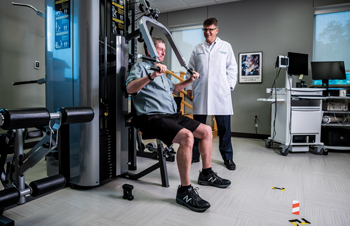
MOVING FORWARD: Dr. Jeff Burns’ work on the effects of aerobic exercise on Alzheimer’s advanced the understanding of the importance of lifestyle and disease prevention. The KU ADC is known internationally for this research and developed the Lifestyle Empowerment for Alzheimer’s Prevention (LEAP!) program in 2015 to help people incorporate the latest knowledge into their everyday lives.
Photo by Dan Videtich
Photo by Dan Videtich
Enhance outcomes
For Alzheimer’s, prevention is part of the cure. Postponing memory changes for five years will cut the incidence of the disease by 50%. Nearly half of all Alzheimer’s disease cases are attributable to risk factors that can be changed. This is where Lifestyle Empowerment for Alzheimer’s Prevention (LEAP!) comes in.
LEAP! translates the latest Alzheimer’s prevention research into recommendations for everyday life. It centers on keeping your brain active, exercise, healthy eating, getting enough sleep, social connections and managing stress. Thanks to donors who provided support to KU ADC on One Day. One KU. in February 2020, all patients of the Memory Care Clinic receive the LEAP! Book, Brainpower Blueprint: Simple Strategies for Optimal Brain Health.
Dependable research and treatment options rely on diverse participation. To expand education and care throughout the entire community, outreach programs have been developed. Aging with Grace is headed up by postdoctoral fellow Ashley Shaw and has a special focus on Kansas City’s African American community. A bilingual program engaging Latinos is led by KU ADC assistant professor Jaime Perales Puchalt.
KU ADC also intends to add providers to increase the number of patients seen and make sure patients can get an appointment quickly. Growing support services for caregivers is also part of the plan, so they can help loved ones without neglecting their own well-being.
Extend access to care
Where a patient lives shouldn’t determine the care they receive. KU ADC is increasing specialized memory care capabilities across Kansas through the Cognitive Care Network. It strives to increase early diagnosis of dementia and supply more resources to families so crises can be prevented. The network provides primary care physicians with education and training to integrate cognitive screening, diagnosis and treatment approaches into their practice.
KU alumni Linda and Ray Carson have personal experience caring for a family member with dementia and know the challenges it can bring. Through their philanthropy, they decided to support the Cognitive Care Network and help other families. “For Alzheimer’s patients and their families, we want to make this journey the best it can be,” Linda said. “With the Cognitive Care Network reaching out to rural Kansas, there’s a place to go for information and treatment, and it’s all in the best interest of the patient and their families. The work of KU ADC brings hope.”
Pioneer Innovation
KU ADC leads the country in scientific achievements in their focus areas: lifestyle and prevention and the impact of metabolism on Alzheimer’s disease and related dementias. They are aspiring to build on progress already made, grow their research enterprise and increase clinical trials and grant funding. Adding experienced, creative scientists and physician-scientists to their faculty and training future brain health leaders will accelerate their success.
KU ADC is poised to address one of the largest unmet medical needs of the current generation. They are thinking beyond today’s science and looking ahead. They aim to deliver an integrated, comprehensive solution to disease prevention, patient care, caregiver support and research. The result will be innovative strategies to prevent and treat this disease and eventually end it altogether. It’s no longer a question of if Alzheimer’s disease will be cured, but when.
“Finding a cure for Alzheimer’s disease requires us to take a new approach,” Swerdlow said. “We can’t just remove what’s not working in the brain. We actually have to repair it.”
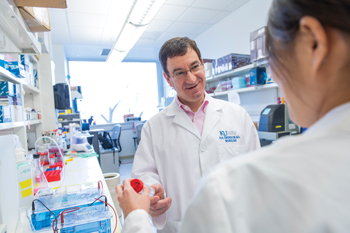
ENERGETIC STUDIES: Dr. Russ Swerdlow’s lab focuses on how mitochondria, the energy sources of our cells and tissues, in the brain impact Alzheimer’s disease. Because the brain uses about 20% of the energy we make per day, good mitochondrial function is vital to a healthy brain.
Photo by Mark McDonald
Photo by Mark McDonald
Habits for Brain Health
Get moving — aim for 150 minutes of aerobic exercise each week.
Eat well — focus on fruits, vegetables, fish and poultry.
Stay connected — visit with friends and family (even virtually) to stimulate your brain.
Keep learning — try something new to stretch your mind.
Manage stress — make time for mental well-being.
Sleep tight — rest is essential to give your brain some time off.
Alzheimer’s Disease by the Numbers
Nearly 6 million Americans are living with Alzheimer’s disease
Alzheimer’s accounts for 60% – 80% of all dementia
163,000 people in Kansas and Missouri have dementia
Alzheimer’s care costs more than $250 billion per year
16 million Americans are providing unpaid care
1 in 10 adults aged 65+ have Alzheimer’s
1 in 3 adults aged 85+ have Alzheimer’s
Weekly Webinar with the KU ADC
Join in for a free online presentation
Thursdays at 2:00 p.m. CST
Discover the topics and register at
kualzheimer.org/webinar-monthly-themes
November/December theme — Celebrating Brain Health: What We Know About Brain Health and Aging
BE PART OF THE PROGRESS
To help patients with Alzheimer’s and their families today and support advances for tomorrow, contact Lindsay Hummer at 913-562-2717 or email.
For information about joining a study, visit KUAlzheimer.org or call 913-588-0555.

